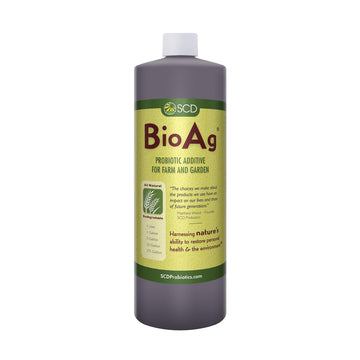Uncover the advantages of implementing a no-till gardening approach in your gardening routine.
The Basics of No-Till Gardening
No-till gardening is a gardening technique that involves minimizing soil disturbance by avoiding traditional tilling or digging methods. Instead of turning the soil over, no-till gardeners leave the soil undisturbed, allowing the natural structure and composition to remain intact.
The primary principle of no-till gardening is to build healthy soil by promoting the growth of beneficial microorganisms and preserving the soil's organic matter. By avoiding tilling, the soil structure is maintained, reducing erosion and compaction and retaining moisture more effectively.
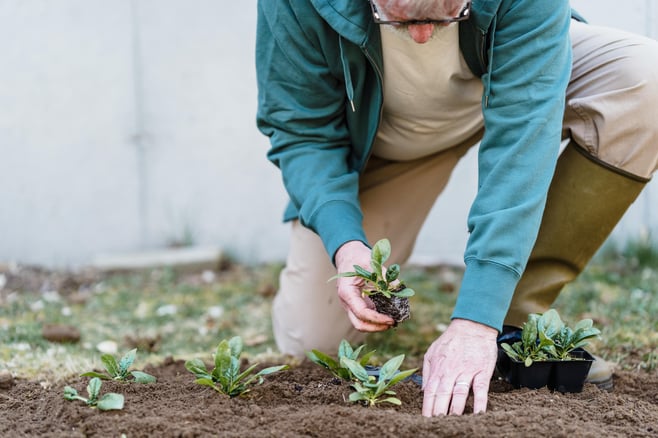
To begin practicing no-till gardening, start by removing any existing weeds or vegetation from the area you plan to garden in. Then, cover the soil with a layer of organic mulch, such as straw or wood chips, to suppress weed growth and protect the soil from erosion.
Over time, as the mulch breaks down, it will contribute to the organic matter in the soil and improve its fertility. When it's time to plant, simply create holes or slits in the mulch to insert your plants or seeds.
By implementing no-till gardening techniques, you can create a sustainable and low-maintenance garden that benefits both your plants and the environment.
Benefits of No-Till Gardening
No-till gardening offers numerous benefits for both gardeners and the environment. Some of the key advantages include:
-
Soil Health: No-till gardening helps to improve soil health by preserving the soil's natural structure and organic matter. This promotes the growth of beneficial microorganisms and enhances the soil's ability to retain moisture and nutrients.
- Erosion Control: By leaving the soil undisturbed, no-till gardening reduces the risk of erosion. The layer of organic mulch helps to protect the soil from the impact of heavy rain or strong winds.
- Weed Suppression: The use of organic mulch in no-till gardening helps to suppress weed growth by blocking sunlight and preventing weed seeds from germinating. This reduces the need for manual weeding and herbicide use.
- Water Conservation: No-till gardening helps to conserve water by improving the soil's ability to retain moisture. The layer of mulch acts as a protective barrier, reducing evaporation and maintaining soil moisture levels.
- Time and Labor Savings: With no-till gardening, there is no need for regular tilling or digging, which saves time and reduces physical labor. Once the initial setup is complete, maintenance becomes easier and less time-consuming.
By embracing no-till gardening, you can create a more sustainable and resilient garden while minimizing the negative impacts on the environment.
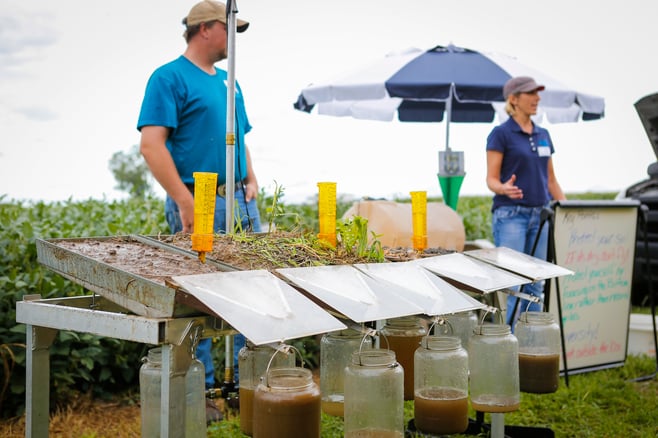
Tips for Implementing No-Till Gardening
If you're new to no-till gardening or looking for some tips to improve your technique, consider the following suggestions:
- Start Small: Begin by implementing no-till gardening techniques in a small area of your garden. This will allow you to experiment and learn from the process before expanding to larger areas.
- Choose the Right Mulch: Select organic mulch materials that are readily available in your area and appropriate for the plants you're growing. Popular options include straw, wood chips, shredded leaves, and compost.
- Mulch Thickness: Apply a layer of mulch that is approximately 2-4 inches thick. This thickness will help to suppress weeds effectively and provide insulation for the soil.
- Mulch Maintenance: Regularly check and replenish the mulch layer as needed, especially as it decomposes over time. This will ensure consistent weed suppression and soil protection.
- Rotate Crops: Practice crop rotation to prevent the buildup of pests and diseases in the soil. By rotating your crops each season, you can maintain a healthy and balanced garden ecosystem.
By following these tips, you can optimize your no-till gardening approach and enjoy the benefits of a thriving and sustainable garden.
Common Misconceptions about No-Till Gardening
Despite its numerous benefits, there are some common misconceptions about no-till gardening.
No-till gardening does not mean that you cannot plant or dig in your garden. Instead, it encourages minimal disturbance to the soil and promotes the use of alternative gardening practices, such as creating planting holes or slits in the mulch.
While no-till gardening helps to suppress weed growth, it does not guarantee a completely weed-free garden. Some weeds may still emerge, but they can be easily managed through regular mulch maintenance and manual removal.
Building healthy soil takes time, and the benefits of no-till gardening may not be immediately noticeable. However, with consistent mulch application and organic matter incorporation, you will gradually improve the soil's fertility and structure.
No-till gardening does not limit your plant selection. You can grow a wide variety of plants, including vegetables, fruits, flowers, and herbs, using this technique. Simply adjust your mulch layer and planting methods based on the specific needs of each plant.
By understanding and dispelling these misconceptions, you can effectively adopt and enjoy the benefits of no-till gardening.
Feed the Soil, Not the Plant
A fundamental principle of no-till gardening is to focus on feeding the soil, not just the plants. By prioritizing soil health, you create an environment where plants can thrive naturally. Here's how you can feed the soil:
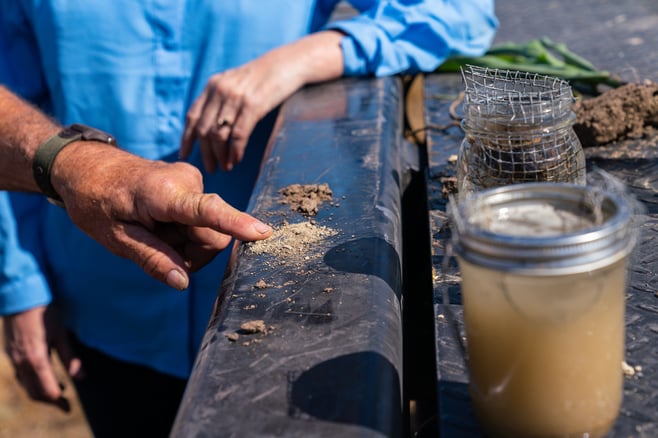
- Organic Matter: Incorporate organic matter into the soil, such as compost, leaf litter, or well-rotted manure. This provides essential nutrients and improves the soil's structure and water-holding capacity.
- Cover Crops: Plant cover crops during periods when you're not actively growing vegetables or flowers. Cover crops, like legumes or grasses, help to prevent soil erosion, add organic matter, and fix nitrogen in the soil.
- Mulching: Maintain a consistent layer of organic mulch on the soil surface. Mulch acts as a protective barrier, moderates soil temperature, retains moisture, and gradually breaks down to enrich the soil.
- Avoid Chemical Fertilizers: Instead of relying on synthetic fertilizers, use organic fertilizers that nourish the soil and promote long-term soil health. This reduces the risk of nutrient runoff and minimizes the environmental impact.
- Microbial Soil Amendments: SCD Bio Ag and SCD Probioitics Mother Cultures
SCD Bio Ag is a patented blend of beneficial microbes plus their bio-fermented metabolites. Its powerful blend to your soil populates plants’ root zones with microorganisms and their bioactive compounds, which convert nutrients into more plant-available forms.
SCD Probioitics Mother Cultures, like ProBio Balance Plus, is a liquid concentrate of beneficial microorganisms featuring enhanced levels of Phototrophic, Purple Non-Sulfur Bacteria (PNSB), which can thrive in any environment—aerobic or anaerobic. This cost-effective, environmentally friendly probiotic mother culture promotes the growth of naturally occurring beneficial microbes, making nutrients more available, when introduced to any living system.
Growth-promoting bacteria, found in SCD Bio Ag and ProBio Balance Plus, can be added to plant soil to improve overall plant health. So when both products are introduced into the soil, they promote healthier, more productive soil, supporting your plants’ health and success.
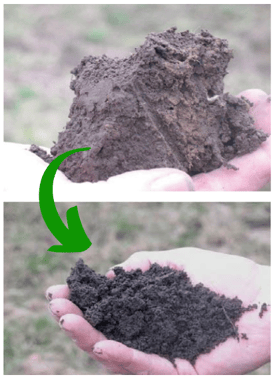
By adopting a holistic approach that prioritizes soil health, you can cultivate a sustainable garden ecosystem that supports healthy plant growth and overall garden productivity.
Success Stories of No-Till Gardening
Many gardeners have experienced remarkable success with no-till gardening.
No-till gardeners have reported significant increases in their harvests over time. By improving soil health and fertility, plants grow stronger and produce more abundant yields. With the use of organic mulch, no-till gardeners have noticed a dramatic reduction in weed growth. This has not only saved them time and effort but also improved the overall aesthetics of their gardens. No-till gardening enthusiasts have observed improvements in soil structure, such as increased crumb structure and better water infiltration. These changes result in healthier root systems and improved nutrient availability for plants. By retaining moisture more effectively, no-till gardeners have been able to reduce their water consumption. This not only conserves a precious resource but also saves money on watering expenses.
These success stories demonstrate the potential of no-till gardening to transform your gardening experience and create a thriving and sustainable garden.


